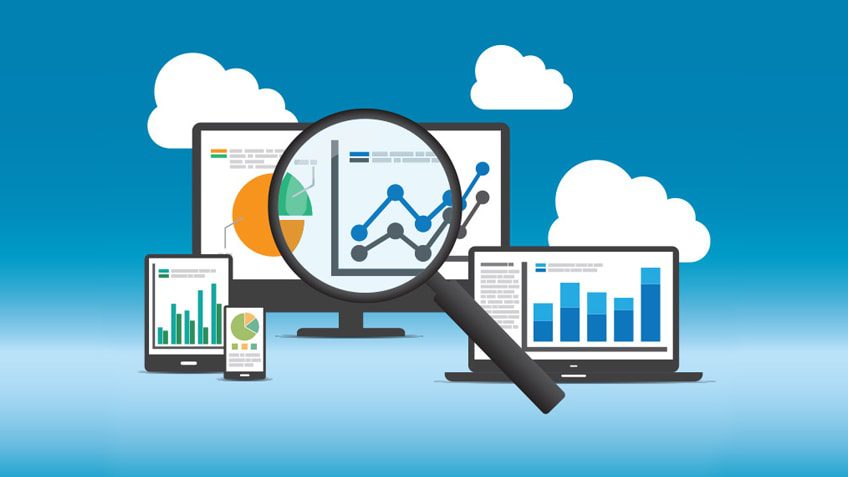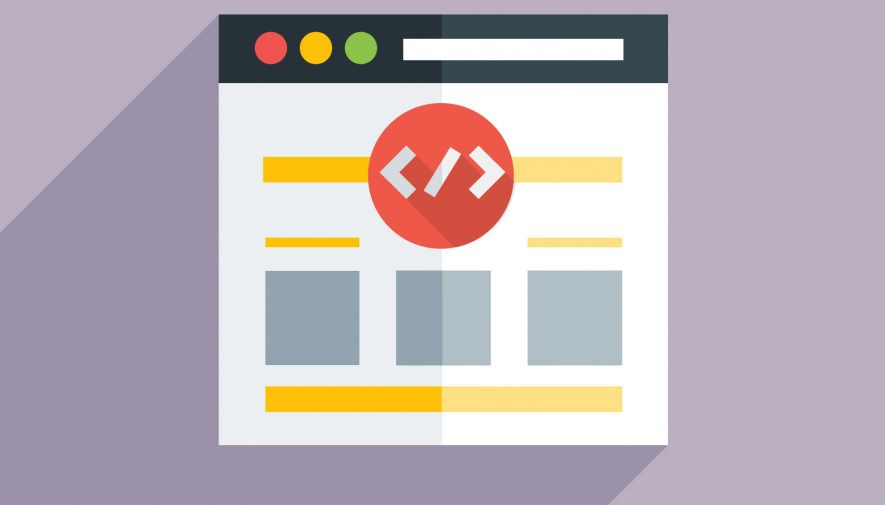It is impossible to exaggerate the importance of SEO in B2B marketing, particularly because every B2B company is fighting for the top spot on Search Engine Result Pages (SERPs). Being discovered by the appropriate individuals at the appropriate moment is just as important as simply being visible. But just as search algorithms are getting smarter, so should our methods for enhancing our internet visibility.

Artificial Intelligence is giving search engine optimization (SEO) a different perspective by automating tedious activities and offering deep knowledge of user behavior and content optimization. Businesses may increase their search engine ranks and give potential customers a more tailored and interesting experience by utilizing AI.
B2B SEO Growth with AI: Strategies and Tools
In the context of SEO, artificial intelligence is the application of machine learning and other AI technologies for trend prediction, data analysis, and task automation that previously required human participation. AI can effectively process and analyze vast amounts of data that exceeds human capacity, making it an invaluable tool for identifying patterns and insights that can inform SEO strategies.
The ability of AI to accurately understand and interpret user intent is one of the biggest effects on SEO. Intent matching is becoming more and more important to search engines like Google over keyword matching. Artificial intelligence (AI) technologies employ natural language processing (NLP) to gain a deeper comprehension of the differences in search queries. This allows businesses to more effectively customize their content to match the needs of users.
The Role of AI in Keyword Research
Keyword research has long been the cornerstone of SEO strategies, guiding content creation and optimization efforts to align with what users search criteria. Traditionally, this process involved manually sifting through search engine data, using various tools to estimate search volumes and competition levels. However, this approach often missed the distinction between search intent and emerging trends. AI can streamline this process and significantly enhance the quality of keyword research.
AI-powered tools use machine learning algorithms to go beyond basic metrics, providing deeper insights into search intent, relevance, and keyword context. These tools analyze search patterns, user behavior, and even competitor content to suggest keywords that are high in volume, relevance, and intent match. For B2B businesses, this means being able to discover niche keywords that are more likely to convert and identify gaps in the content that competitors might have overlooked.
These are some of the practical tools to use when doing Keyword Research with AI:
SEMRush’s Keyword Magic Tool
The Keyword Magic Tool from SEMRush uses artificial intelligence to generate a large list of suggested keywords, including question-based keywords that resemble real-world search inquiries. Marketers may create content strategies that directly target the intent underlying consumers’ searches by utilizing these insights, which will improve SEO performance and user engagement dramatically.
Ahrefs’ Keywords Explorer
Ahrefs’ Keywords Explorer goes beyond traditional keyword research tools by incorporating clickstream data to generate keyword ideas, offering a realistic view of actual search volumes and click-through rates through advanced AI analysis. This unique feature allows marketers to gauge the potential traffic benefits of targeting specific keywords, providing a competitive edge in SEO planning.
Moz’s Keyword Explorer
Moz’s Keyword Explorer is an AI-powered tool that analyzes and comprehends the intricacies of search engine results page (SERP) properties. It provides strategic keyword recommendations that are crafted to interact with particular SERP elements, like featured snippets, local packs, and image carousels. material producers and SEO experts can now find possibilities where their material not only ranks well but also appears prominently in a variety of SERP forms thanks to this sophisticated research. The tool’s insight into SERP features enables users to optimize their content with precision, aiming for visibility in areas most likely to capture user attention and drive traffic.
Using AI to Optimize Content
It can be difficult to produce content that both appeals to your target audience and ranks highly in search engines. AI, on the other hand, provides tools for content optimization that improve user engagement, relevancy, and keyword density. AI systems can analyze powerful content on the internet and find trends that make it valuable. They may subsequently suggest ideas on how to organize your information, as well as point out any gaps in your current content.
Grammarly and Hemingway
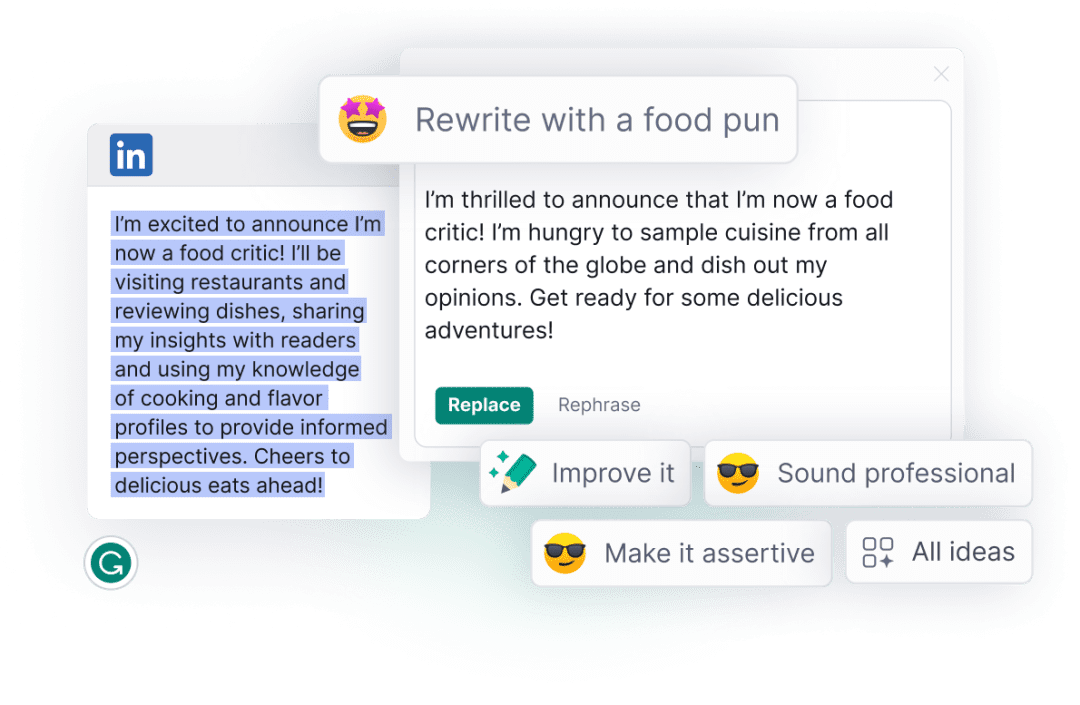 Hemingway and Grammarly are essential tools for digital writers because they use cutting-edge artificial intelligence (AI) to dramatically improve text readability, which is becoming more and more crucial for SEO success. Grammarly’s AI engine provides real-time text analysis, which also makes recommendations for vocabulary expansion, stylistic enhancements, and grammatical fixes. This guarantees that the text is readable by a large audience, devoid of errors, and interesting. Hemingway, on the other hand, promotes a powerful and distinct writing style that connects effectively with readers by concentrating on streamlining complicated sentences, minimizing the use of the passive person, and getting rid of unnecessary adverbs.
Hemingway and Grammarly are essential tools for digital writers because they use cutting-edge artificial intelligence (AI) to dramatically improve text readability, which is becoming more and more crucial for SEO success. Grammarly’s AI engine provides real-time text analysis, which also makes recommendations for vocabulary expansion, stylistic enhancements, and grammatical fixes. This guarantees that the text is readable by a large audience, devoid of errors, and interesting. Hemingway, on the other hand, promotes a powerful and distinct writing style that connects effectively with readers by concentrating on streamlining complicated sentences, minimizing the use of the passive person, and getting rid of unnecessary adverbs.
Clearscope and MarketMuse
Leading content optimization companies Clearscope and MarketMuse use cutting-edge algorithms to compare your content to that of the top-performing companies in your sector. To deliver focused suggestions for keywords, topics, and issues, these tools thoroughly analyze high-ranking material and extract important insights. This methodical approach guarantees that your material is in line with user preferences and current trends and that it is enhanced with reliable and pertinent information.
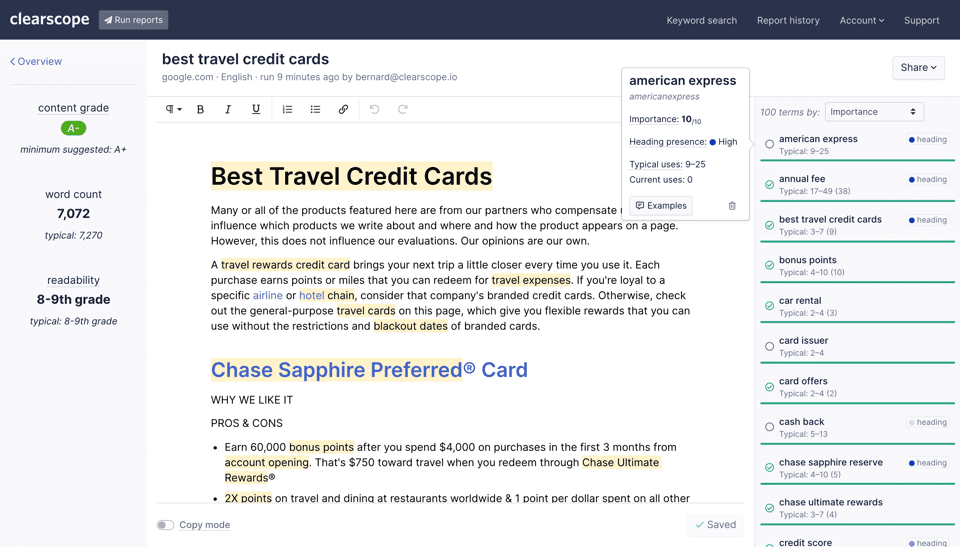 Clearscope offers an intuitive platform that simplifies the process of content optimization by highlighting essential keywords and suggesting content structures that improve SEO performance. It focuses on enhancing the depth and breadth of your content, ensuring that it covers all aspects necessary to be considered authoritative in your field. By doing so, Clearscope aids in elevating your content’s search engine visibility and user engagement.
Clearscope offers an intuitive platform that simplifies the process of content optimization by highlighting essential keywords and suggesting content structures that improve SEO performance. It focuses on enhancing the depth and breadth of your content, ensuring that it covers all aspects necessary to be considered authoritative in your field. By doing so, Clearscope aids in elevating your content’s search engine visibility and user engagement.
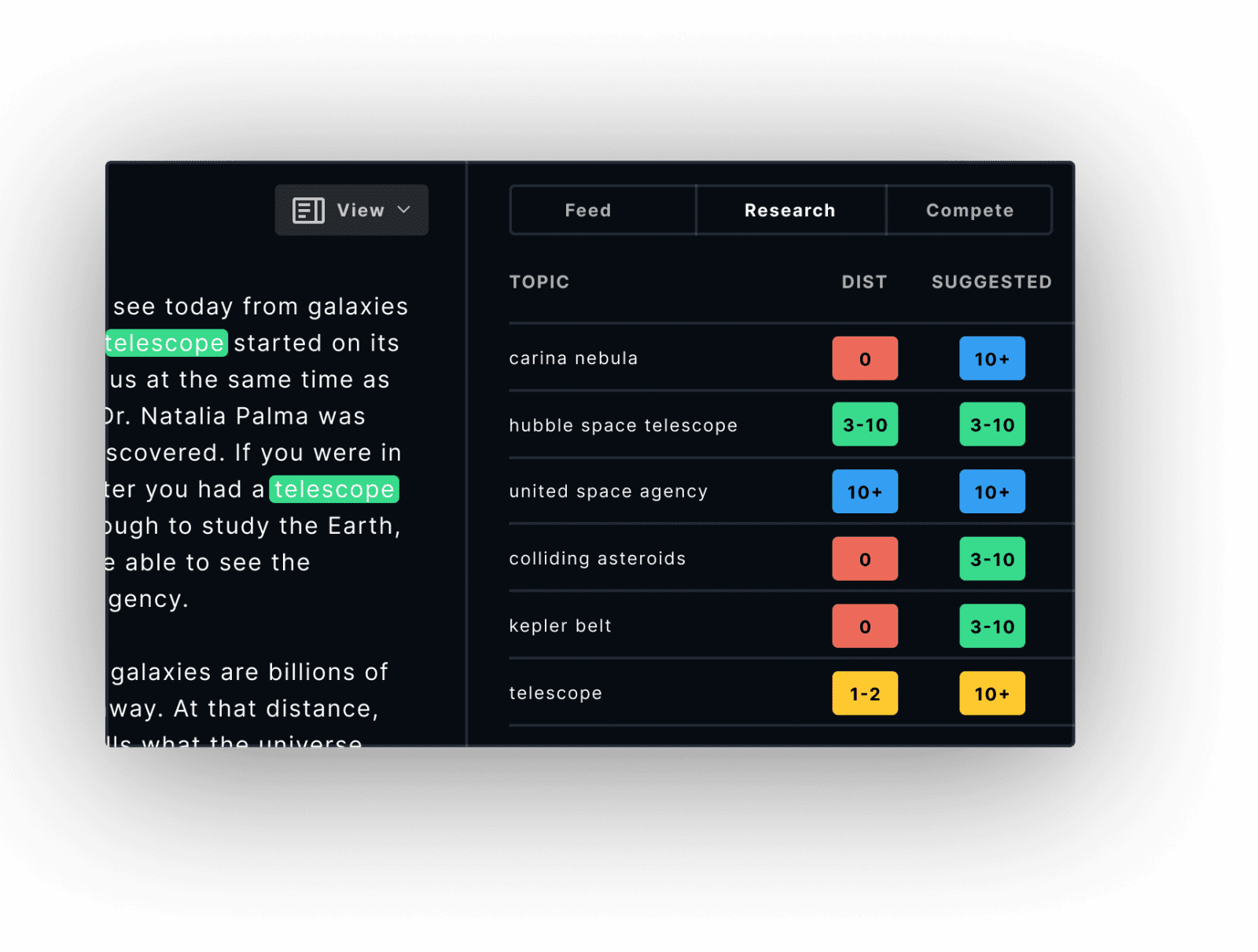 Similarly, MarketMuse uses AI to scan your content and compare it with existing high-performing articles, identifying gaps in topic coverage and suggesting specific areas for improvement. This includes recommending additional keywords that can increase your content’s relevance and authority on a given subject. MarketMuse’s approach is designed to not only attract more traffic but also to build a content foundation that establishes your site as a thought leader in your niche.
Similarly, MarketMuse uses AI to scan your content and compare it with existing high-performing articles, identifying gaps in topic coverage and suggesting specific areas for improvement. This includes recommending additional keywords that can increase your content’s relevance and authority on a given subject. MarketMuse’s approach is designed to not only attract more traffic but also to build a content foundation that establishes your site as a thought leader in your niche.
Surfer SEO
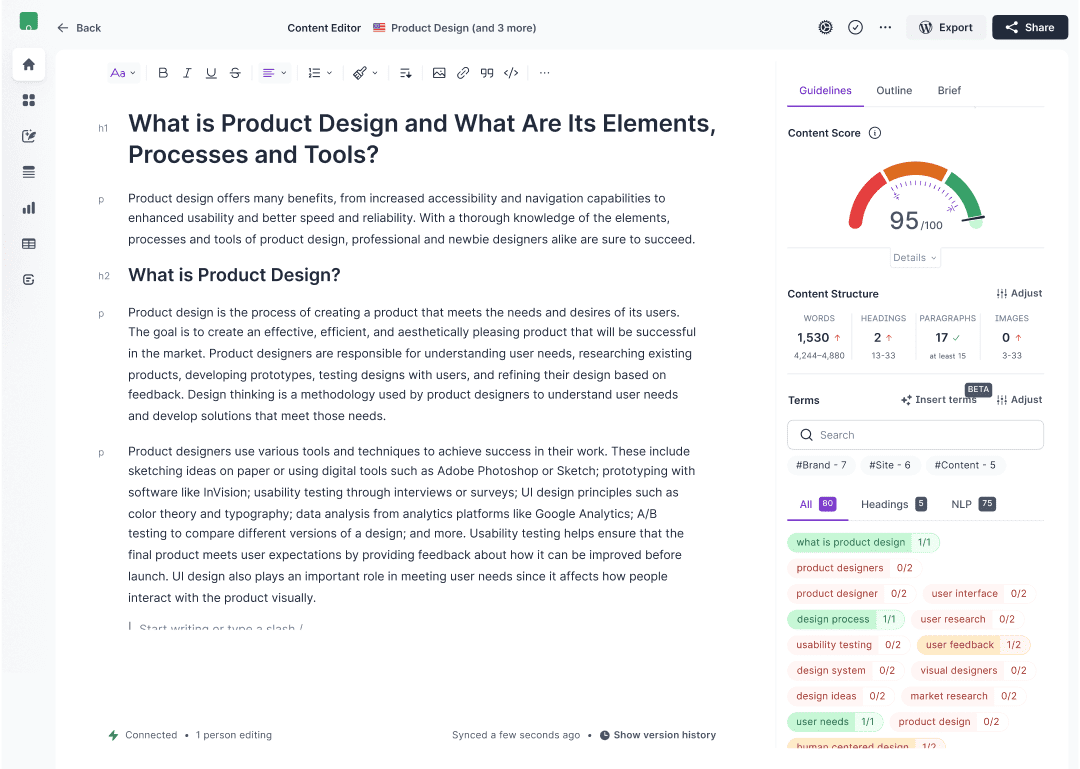 Surfer SEO harnesses the power of artificial intelligence to conduct a meticulous analysis of competing SERPs (Search Engine Results Pages), offering users comprehensive insights and actionable recommendations for optimizing on-page SEO elements. This includes guidance on ideal keyword density, appropriate content length, and the most effective content structure for ranking purposes. By scrutinizing the strategies of high-ranking competitors, Surfer SEO identifies patterns and best practices that are crucial for climbing the SERP rankings.
Surfer SEO harnesses the power of artificial intelligence to conduct a meticulous analysis of competing SERPs (Search Engine Results Pages), offering users comprehensive insights and actionable recommendations for optimizing on-page SEO elements. This includes guidance on ideal keyword density, appropriate content length, and the most effective content structure for ranking purposes. By scrutinizing the strategies of high-ranking competitors, Surfer SEO identifies patterns and best practices that are crucial for climbing the SERP rankings.
The tool’s AI-driven analysis extends beyond simple keyword usage, delving into aspects like the relevance and context of content, the strategic use of headers and subheaders, and the incorporation of images and other multimedia elements. This ensures that recommendations are not just about matching keyword metrics but about crafting content that provides real value to readers, aligning with the search engines’ increasing focus on user experience and content quality.
The Secrets of High-ranking Websites with AI SEO
In addition to content optimization and keyword research, artificial intelligence is essential for SEO analytics and reporting. Although traditional analytics tools yield a multitude of data, it can be daunting to understand this data and come to a decision. By providing predictive analytics, trend analysis, and automated reporting, AI makes this easier and frees up firms to concentrate on strategy rather than data analysis.
These are some of the AI-powered analytics that can help rank the content on websites:
Google Analytics
To sort through enormous volumes of data and find patterns and trends that provide insightful information about user behavior and website performance, Google Analytics uses sophisticated artificial intelligence (AI). Being able to decipher the intricate interactions between users and web pages and provide a thorough insight into what drives engagement, conversions, and, ultimately success makes this powerful tool essential for website owners, marketers, and SEO experts.
Google Analytics AI features, which include automatic insights, anomaly detection, and predictive analytics, facilitate the process of helping users pinpoint areas for development and progress. To name a few, it can identify the most efficient content and distribution channels for targeting target audiences, identify unforeseen changes in traffic patterns, and forecast future trends using historical data. Google Analytics delivers projections that aid in strategic planning in addition to reports on previous and present performance by utilizing machine learning algorithms.
SEMRush and Ahrefs
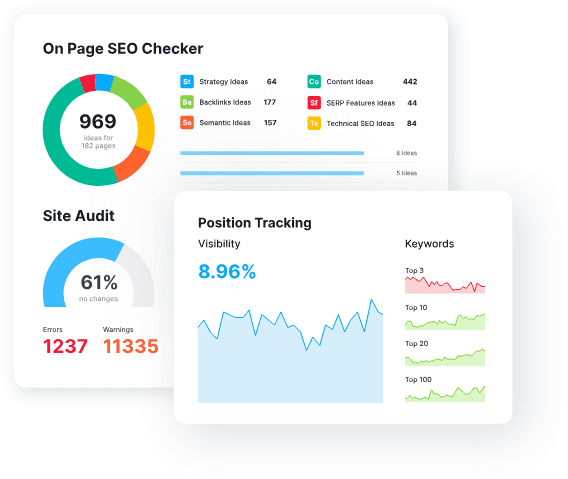
At the vanguard of SEO and digital marketing technologies, SEMRush and Ahrefs utilize artificial intelligence (AI) to provide complete solutions for tracking keyword ranks, analyzing backlink profiles, and managing a website’s overall SEO health. These tools make it easier for marketers and website owners to effectively optimize their online presence by streamlining the SEO process and giving users automatic reports that translate complicated data into useful insights.
Through constant keyword ranking monitoring, SEMRush and Ahrefs assist users in staying informed about how their content is performing in search engine results pages (SERPs), pointing out areas for improvement as well as effective tactics that can be repeated or built upon. Sustaining exposure in a fiercely competitive digital landscape requires constant scrutiny.
The examination of backlink profiles, another critical aspect of SEO, is greatly enhanced by AI technology. Both SEMRush and Ahrefs offer tools that analyze the quality and quantity of backlinks, assessing their impact on a site’s authority and search rankings. This insight allows users to develop strategies for building healthy backlink profiles, such as identifying link-building opportunities or pinpointing and disavowing harmful links that could penalize their site.
Conclusion
The possibilities to improve keyword research, content optimization, and analytics when you integrate AI in your B2B SEO campaign are unrivaled. With AI, companies can offer content that genuinely connects with their audience, keep one step ahead of the competition, and improve the return on investment from their SEO campaigns.
Your B2B marketing initiatives will rise to new heights of effectiveness and productivity if you use AI as a tool to support your SEO strategy. AI is the engine driving SEO in the future.
FAQs
How do I choose the right AI tools for my SEO needs?
Start by identifying your specific SEO challenges and objectives. Research AI tools that are designed to address these areas, whether it’s keyword research, content optimization, or analytics.
Will AI replace SEO professionals?
AI is a powerful tool that professionals can use to improve their jobs. It is unlikely to replace SEO professionals.






